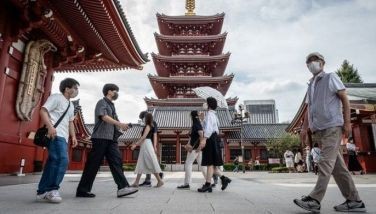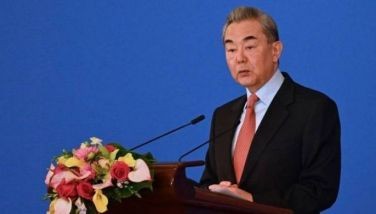Official: Iran won't ship enriched uranium abroad
TEHRAN — Tehran will not send any of its enriched uranium abroad as part of a deal with world powers to ease sanctions over its contested nuclear program, a top Iranian negotiator said yesterday.
Abbas Araghchi's comments published on Iranian state television's website came ahead of new negotiations between Iran and the five permanent UN Security Council members and Germany in Geneva on Tuesday and Wednesday.
The negotiations with the group, collectively known as the P5+1, come as international sanctions over the nuclear program continue to batter Iran's economy. Iran insists its nuclear program is peaceful and only seeks reactors for energy and medical use, while the West suspects Iran seeks to make a nuclear weapon.
Iran is urging the US to ease sanctions in exchange for nuclear concessions. But Iran has not publicly specified what measures it could take to satisfy Western concerns.
On yesterday, state television quoted Araghchi as saying "shipping the material abroad is our red line. We do not allow shipment of even one gram of uranium from Iran."
Araghchi also said Iran will not withdraw "one iota" from its right to enrich uranium — a material needed to make nuclear weapons. His remarks contrasted those of Parliament Speaker Ali Larijani, who last week said Iran would be willing to discuss its "surplus" uranium stockpile with Western powers.
Araghchi also said he will be in charge of the talks on Tuesday and Wednesday. Foreign Minister Mohammad Javad Zarif apparently only will attend the initial and final sessions of the talks.
"If they are honest in their words and claims, this will be achievable for them," Araghchi said of the talks.
Iranian President Hassan Rouhani, elected this summer with the backing of centrists and reformists, has pledging a new approach to relations with the West. While previously saying Iran's "enrichment right is not negotiable," Rouhani has hinted his country may be willing to make as-of-yet unspecified concessions.
The nuclear negotiations come amid a thaw in relations between Iran and the US, which included a phone conversation between President Barack Obama and Rouhani. It was the highest-level dialogue between the countries since the 1979 Islamic Revolution. US Secretary of State John Kerry also met Zarif in the sideline of the UN General Assembly, the highest one-to-one talks between the two countries in more than three decades.
Araghchi also said his country's delegation and their US counterparts will meet on the sideline of nuclear talks in Geneva, the official IRNA news agency reported.
The US has been applying various levels of sanctions on Iran for decades, but tighter restrictions by the West on the oil sector have cut exports from 2.5 million barrels in 2011 to 1.2 million. Steps to block Iran from international banking networks, meanwhile, sent the national currency, the rial, into free-fall in late 2012, losing 40 percent of its value in a matter of weeks. The rial has clawed back since Rouhani's election in June, but is still far below its exchange value before the latest wave of sanctions.
- Latest
- Trending
































